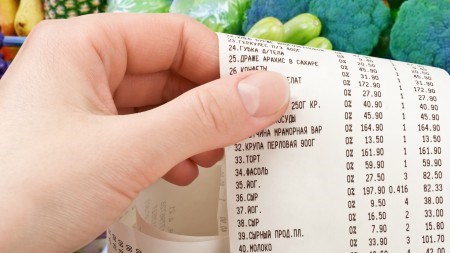With taxes, fuel costs and municipal tariffs increasing, it is prudent to keep a tight rein on your spending. Small, seemingly insignificant expenses can add up and cause you to lose money. Here are 7 expenses that might have slipped under your radar.
Consumer confidence may be rising in SA but with fuel prices, water and electricity tariffs and taxes all on the rise, we all still need to keep a tight rein on our personal and household budgets.
“And this means seeking out and eliminating micro money leaks that might seem really insignificant now but can add up to a lot of wastage over time – like a R5 or R10 a month unauthorised withdrawal from your bank account that only catches your attention after a year or two,” says Berry Everitt, CEO of the Chas Everitt International property group.
“In other words, saving these small amounts now instead of letting them just drain away could make all the difference when it comes to achieving a big goal – like paying off your bond faster, or saving for your children’s education.”
Here are a seven “hidden” areas in which you might be losing money, and some tips on how to plug the leaks:
Food waste.
Even if it seems cheaper to buy fresh food in bulk, you will be wasting money if it goes off in the fridge before you can eat it. Rather buy less or arrange with friends or neighbours to share your bulk purchases so everyone saves. Even better, if you have a garden, make it your mission to grow as much of your own food as you can.
Read more: How to keep food fresher for longer
Processed food and takeaways.
You may not have time to cook every evening, but you will save a lot if you can set aside one day a week to cook and create your own “ready meals” and put them in the freezer, instead of buying packaged dinners or fast food. In addition, you should try to entertain at home whenever possible instead of dining out.
Insurance premiums.
You should review these annually and get quotes from your current insurer and from competing companies. Values and circumstances change and you may qualify for certain discounts based on your age or various risk factors. Just make sure you always make like-for-like comparisons when it comes to excesses payable and services offered as well as the monthly premiums.
Service charges.
Go through your bank statements and check what you’re being charged for deposits, ATM withdrawals, online banking, notifications, debit orders and account management fees. These may seem like small amounts but they can add up to hundreds of rands a year that you could save by changing how – or where - you bank. Similarly, you should regularly review the management fees on any investment accounts you have, and check your cell phone, city council and other bills for any unexplained charges.
Subscriptions.
Subscription services are becoming increasingly popular, with things like Showmax, iTunes, audio books, wine and even razor deliveries being so easy to sign up for, but many of us forget to cancel these subscriptions when we don’t use the services anymore. These may seem like small amounts too, but R100 a month for a service you don’t use is R1200 a year that you could be saving.
Gym or sports club membership fees.
If you joined with good intentions but just couldn’t stick to your exercise, tennis or golf routine, it may be time to stop kidding yourself and cancel your membership. If you’re still keen to get fit, take up running or even walking whenever your schedule permits, or pay a one-time fee for a workout app on your phone.
Energy vampires.
Experts say the power invisibly consumed by various electronic devices in your home – even when you are not there - can account for as much as 15% of your household electricity usage and cost you hundreds of wasted rands a year. The worst of these energy vampires are appliances with “off” buttons that don’t actually ever go off but stay on “standby” and keep using electricity. They include TV’s, sound systems and garage door or gate openers with remote controls, as well as devices with continuous digital displays like DSTV decoders and microwaves, and chargers for cell phones and other electronic equipment. The simplest solution is to unplug these or turn them off at the wall when they are not in use. And if you’re away from home all day, you can make further savings by turning off your geyser until you get home in the evening.
Read more: Save energy and boost your deposit savings




